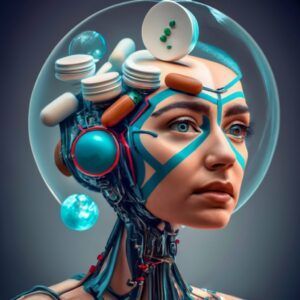AI Is Being Used To Develop New Ways To Diagnose and Treat Cancer
Tool TrendAI • October 7, 2023
The post AI Is Being Used To Develop New Ways To Diagnose and Treat Cancer first appeared on Tool Trend AI.

ToolTrendAI

Artificial intelligence (AI) is rapidly transforming the field of cancer care. AI algorithms are being used to develop new ways to diagnose cancer earlier and more accurately, to personalize cancer treatments, and to improve the quality of life for cancer patients.
One of the most promising applications of AI in cancer care is in the development of new imaging techniques. AI algorithms can be used to analyze medical images, such as MRI scans and CT scans, to identify cancer cells that may be too small or too subtle to be seen by the human eye. This can help doctors to diagnose cancer earlier and to stage the cancer more accurately.
AI is also being used to develop new personalized cancer treatments. AI algorithms can be used to analyze a patient’s tumor DNA and other genetic data to identify the specific mutations that are driving the cancer’s growth. This information can be used to develop a treatment plan that is tailored to the individual patient’s cancer.
In addition to its use in diagnosis and treatment, AI is also being used to improve the quality of life for cancer patients. For example, AI algorithms are being used to develop new pain management strategies and to provide emotional support to cancer patients.
These are just a few examples of the many ways that AI is being used to improve cancer care. AI has the potential to revolutionize the way that cancer is diagnosed, treated, and managed.
Overall, AI is a powerful tool that has the potential to transform cancer care and improve the lives of millions of cancer patients.
The post AI Is Being Used To Develop New Ways To Diagnose and Treat Cancer first appeared on Tool Trend AI.
Have a question or comment?
Let us know.